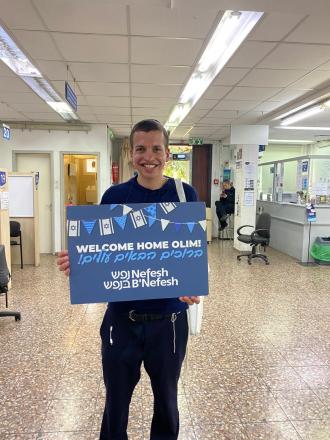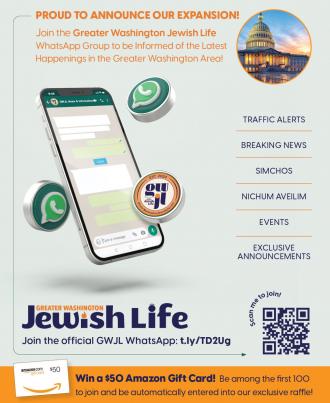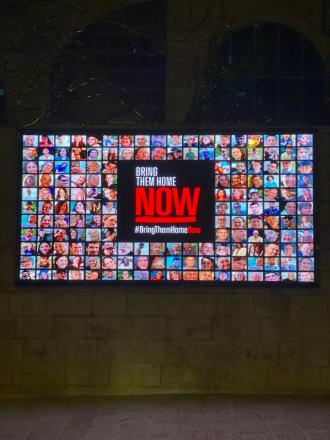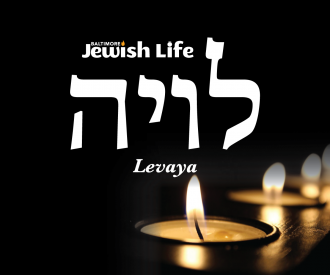In this week’s Parsha, Mishpatim, the Torah guides us in building the legal infrastructure for the founding of the Jewish State. A significant portion of the Parsha address the legal relationships between lender and borrower, between thief and victim, between master and servant, between immigrant and native, between the rich and the poor and so on.
Let us consider what our Parsha says regarding the lender-borrower relationship. “If you shall lend money to My people, to the poor that be with you, you shall not be to him as a demanding creditor, neither shall you place upon him any interest.” The Hebrew word for interest is neshech which translates as biting. The implication is that the interest you take from him is biting your borrower. This seems strange. Biting implies taking something that is inherently not mine, a piece of my friends body. Why should this be, did I not give up my money to him? Did I not incur a loss, I could have placed my money in an investment that earns 5% annually and instead I lent it to him. Am I not entitled to charge him a mere 3%. Why does the Torah call it biting?
I believe the Torah is teaching a profound lesson. There are two basic paradigms by which Man views his world. These two ways are exclusive to each other. One leads to world harmony and the other leads to world destruction. These divergent mindsets result from the answer one gives to the following question. How should I relate to this world in which I find myself? Is this world here for me to own? To work hard and make it mine? Or perhaps the world does not belong to me and it never will. There is a Creator to whom everything belongs including myself. Rather, the world is here for me to use or for me to access.
The nature of ownership is by definition exclusive. Namely, only the owner can own it. Nobody else can have ownership. Although others may be able to use it with the permission of the owner but if the world is here to be owned by Man then every man is on his own. While partnership is a possibility, it nevertheless remains exclusive to the rest of Mankind. Furthermore, it makes ownership a goal and an objective on its own with no further justification. It becomes an end of its own. The more I own the more I am. If someone else has more than me then he is greater than me and I am smaller than him.
Hence, if we address the question with the first answer the world becomes a game of competition where every person is an opponent to the next. Every person must hold his cards close to his chest and certainly not share them with his neighbor. Every man is driven to acquire for the sake of acquisition alone. When I meet a person I look for his faults and shortcomings because it advances my goal of competition.
While this will certainly inhibit Man from sharing his wealth with others, nevertheless the spirit of philanthropy can still flourish. It will be limited to only those situations where the philanthropist gains from it. If the world is here for me to own then why should I give away my ownership, unless I stand to gain further ownership. Further ownership is not limited to material matter, it also includes dignity, respect and honor as well as other forms of pleasure.
The nature of usership or accessibility is by definition inclusive. Namely, there is no finite number to which it is limited. Everybody can use the world. It is accessible to everybody without limiting its use. Furthermore, usage is not a goal and objective of its own. Rather it becomes a means to accomplish something greater. The energy that drives a person will no longer be ownership it will be a goal that he has discovered on his own. Every man must identify for himself what he finds worthwhile and meaningful to use and access this world. It is definitely more difficult to identify one’s goal in this mode but once that meaningfulness is discovered everything he does becomes meaningful.
Hence, if we address the question with the second answer the world becomes a game of collaboration and sharing where every person is an asset to his neighbor. Every person is pursuing their personal goal of achieving what they define as meaningful. No two goals are the same and nobody is going to take away the other fellow’s accomplishment. There is no source of competition and no need to be afraid of the other person.
I am therefore willing to share my resources and opportunities with my neighbor to support him in achieving his goal and he is willing to share his resources and opportunities with me. When I meet another person I look to find his qualities to see what I can learn from him. The more qualified my neighbor is, the grateful I am. I can rejoice with my neighbor in his success and cry with him in his failure.
An amazing picture of world peace and true harmony emerges replacing a world of competition, discord and distrust.
Let us return to the biting question. The Torah is teaching us that we should take the second alternative as our world view. We must see our assets as belonging to HaShem given to us to use and access to accomplish our self determined goals. When my neighbor needs money and I have available money I should make it accessible to him. If he cannot pay it back at this time I may not be a demanding creditor. I shall wait when he has it. There is nothing I lose by sharing my assets with him. And since HaShem instructed me to lend my available funds to the needy Jew I could not have used it to make 5% because my money is not mine, it is HaShem’s. Therefore any interest that I take would be biting my friend.
Unfortunately, the world we currently live in has adopted the first world view. Even in the field of education we find ourselves placed in a world of competition. I know serious educators who truly believe that competition between children in racing to the top of the class is a good thing that must be harnessed. When in fact the Torah teaches us that the reverse is true.
In the spirit of sharing resources I wish to credit Simcha Gluck and Ronen Gafni from FreshBizgame.com for inspiring me to contemplate the above and thereby finding this refreshing new look in the pages of The Book. (The name of this Parsha thought comes from the creators of FreshBiz. Page 55 of The New Entrepreneurz)















